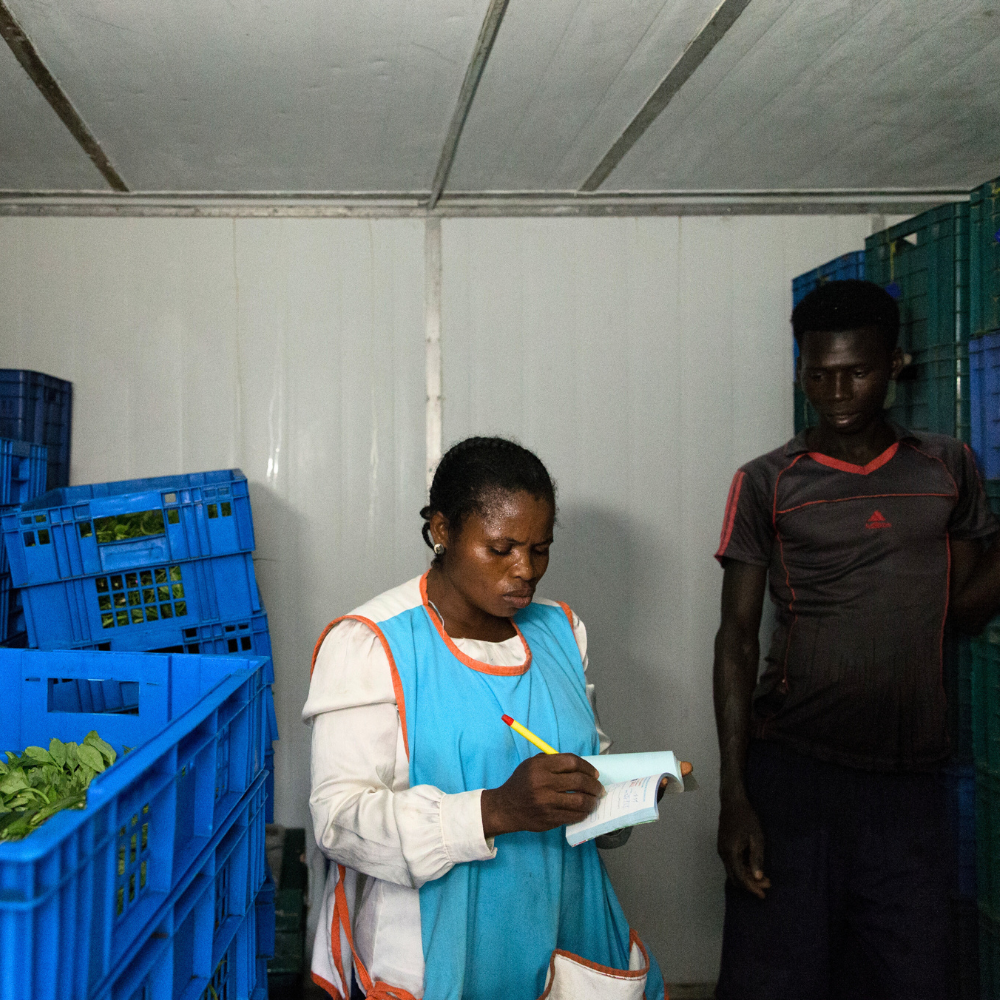PRESS RELEASE: Nigerian Social Enterprise Tackles Food Insecurity with Solar-Powered, Walk-in Cold Rooms
Nigerian social enterprise, ColdHubs, was granted over £110,000 in grant funding to develop affordable and efficient solar-powered walk-in cold rooms. Cold rooms help smallholder farmers across Nigeria to keep their produce fresh whilst reducing carbon emissions. The grant was awarded by the Efficiency for Access Research and Development Fund, which is funded by UK aid and IKEA Foundation.

Around the world, 690 million people go without enough food, and close to 14% of food is lost between harvest and distribution. Most of this food loss is due to a lack of effective cold storage, such as refrigerators. While smallholder farmers produce one third of the world’s food, many cannot access refrigeration due high upfront costs. In addition, electrical connections are often unstable in rural areas, so people who do have refrigerators, cannot reliably power their appliances.
To help address this issue and also reduce carbon emissions, ColdHubs has developed solar-powered walk-in cold rooms that enable smallholder farmers to store food in a shared space. The walk-in cold rooms are more affordable for smallholder farmers compared to traditional refrigerators, as they simply need to pay a daily flat fee to store each crate of produce. The social enterprise has also developed a larger,10-tonne cold room for fresh food markets. This second-generation cold room is up to 200% more efficient, produces 67% less e-waste and is less expensive due to a reduction in battery size.
Minister For Africa, Vicky Ford said:
“Providing access to environmentally friendly, reliably powered solutions is vital to helping those communities across Africa hardest hit by climate change.”
“I am proud that UK aid has supported the development of solar-powered cold rooms in Nigeria. This important technology will help tackle food waste and improve smallholder farmers’ livelihoods – essential steps towards achieving a more sustainable future for all.”
Nnaemeka Ikegwuonu, Founder of ColdHubs said:
“The Efficiency for Access Research and Development Fund grant was incredibly useful in enabling ColdHubs to develop a new version of its solar-powered walk-in cold rooms, integrating thermal storage, achieving greater efficiency of the cold storage and enabling smallholder farmers, retailers and wholesalers an opportunity to store fresh fruits and vegetables in larger volumes, and for longer.”
Since 2015, ColdHubs has supported 5,250 farmers, retailers and wholesalers, stored over 52,700 tonnes of fresh fruit and vegetables, and avoided an estimated one million kg of CO₂ emissions through the use of renewable energy sources.
Efficiency for Access’ foundational initiative, the Low Energy Inclusive Appliances programme, supports organisations working to advance sustainable cold food storage through the Efficiency for Access Research and Development Fund, and the Global LEAP Off-Grid-Cold-Chain Challenge. Collectively, these initiatives have supported 20 organisations with over £1 million in grant funding.
Jeffrey Prins, Head of Portfolio (Renewable Energy) IKEA Foundation, said:
“To bolster food security and reduce food waste at a global level, it is important to create and accelerate the use of cooling solutions that are powered by renewable energy. As such, I’m delighted to see the impact that enhanced access to affordable, solar-powered cold rooms can have on smallholder farmers in Nigeria. The IKEA Foundation is proud to support Efficiency for Access’ initiatives that help advance climate-friendly refrigeration.”
Watch our in depth case study showcasing how sustainable refrigeration can help to create a more resilient food system here.